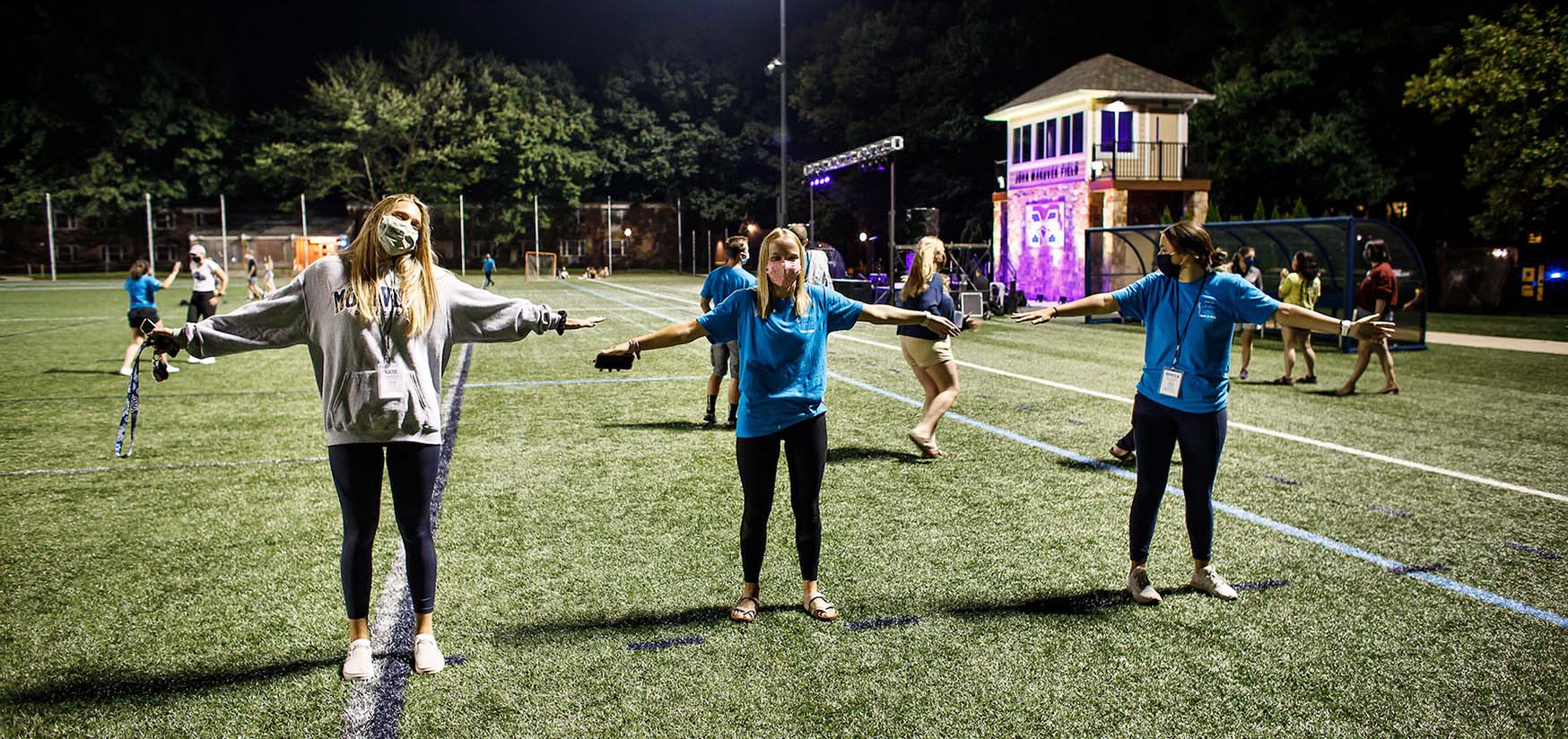
On-campus living and learning during the pandemic are only possible if the entire Moravian College community works together to prevent COVID-19 from infiltrating our community and then handling, swiftly and effectively, any cases that may occur.
COVID Training
That community effort, like all important undertakings, begins with education. Diane Husic, dean of the school of natural and health science, turned to Moravian’s nursing department and asked if our students would create COVID training for the campus. Nursing faculty Joelle Milkovitz, Shirley Guider, and Kimberly Jones (Milkovitz and Jones are 2020 graduates of Moravian’s MSN nursing program) immediately got to work with the post-baccalaureate nursing students in cohort 6. They presented students with guidelines for training modules to educate the Moravian College community about the virus, its dangers, how it is transmitted, what to do if you have symptoms, best practices for keeping our community safe, and sources for current information about COVID.
“The training was broken down into module topics, and then the students created infographics, PowerPoint presentations, and quizzes,” says Milkovitz. “They did extensive research to develop the material and used QR codes and catchy phrases and information to engage the learner.
“The students were all passionate about this project and took great pride in helping keep their community healthy and safe,” adds Milkovitz, “They represented the true meaning of what it is to be a community health nurse.”
At the time, cohort 6 was enrolled in the course “Embracing the Challenged Community.” Under normal circumstances they would have spent clinical time at various sites to gain experiences in challenged communities. “Part of being a community nurse is assessing the needs of the community and collaborating with partnerships to develop programs and education for the benefit of those in the community,” says Jones. “Teaching is a crucial aspect of nursing interventions, and developing this COVID-19 educational learning experience for Moravian College fit right in with the role of a community nurse experience.”
Of note, the college considered the work of outside vendors but was so impressed with the content our students produced and felt it was more creative and specific to the Moravian community than what they had seen from vendors.
Instructional technologist, Liz Tate, helped the nursing team upload the modules to Canvas (an online platform), and COVID training was ready on August 20 and completed by all students, staff, and faculty for the first week of classes.
Symptom Screening
In addition, the college has implemented mandatory online symptom screening for faculty, staff, and students to complete daily—7 days a week. Anyone experiencing symptoms of COVID-19 must immediately contact the college health center, which is operated by St. Luke’s University Health Network. An individual who tests positive for COVID-19 will be placed in isolation housing on campus where they will have a single room and bathroom and receive meal delivery and other services. Contact tracing will be conducted, and those who have been in close contact with someone who tested positive will be quarantined for 14 days.
Mental Health
Our community needs to pay attention to more than just the possible physical impact of COVID-19; we also need to watch for the effects of the pandemic on our mental health and the wellness of those around us.
Fear about contracting the disease, worry for your loved ones’ health, concerns about finances, feelings of isolation due to social distancing, or perhaps the loss of a loved one to COVID-19—all of these can increase stress, which in turn can affect eating, sleep, and concentration as well as exacerbate existing health problems or mental health issues says the Centers for Disease Control. Know that the Moravian College Counseling Center is open and accepting appointments for virtual sessions.
As Liz Yates, associate dean of students, reminds us, “We always talk about the student culture of taking care of each other—this year it is more important than ever.”